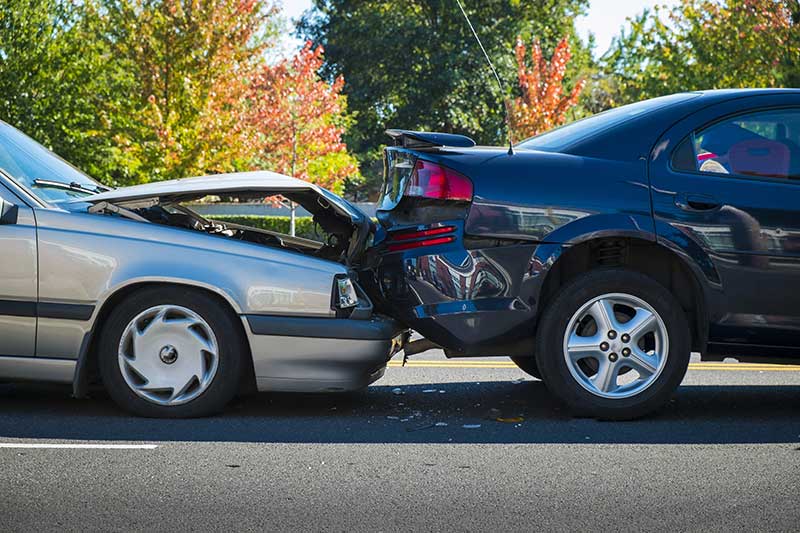Delayed Car Accident Symptoms That Could Impact Your Settlement
November 7, 2025
Delayed Car Accident Symptoms That Could Impact Your Settlement
Not every injury shows up the day of a crash. For many Illinois drivers and passengers, pain and other symptoms surface hours—or even days—later. Those delays can complicate your medical care, insurance negotiations, and the value of your claim. Here’s what Schaumburg crash victims should know about delayed car accident symptoms and how to protect their right to fair compensation.
Why Do Symptoms Show Up Late?
Your body’s stress response can mask pain immediately after a collision. Swelling, inflammation, and soft-tissue damage also evolve over time. As adrenaline fades, underlying injuries become more noticeable. That timing gap is common—and insurers may try to use it against you unless you document early and follow through with care.
Common Delayed Symptoms After a Car Accident
- Neck and Shoulder Pain (Whiplash): Stiffness, reduced range of motion, and headaches that develop the next day are classic signs of soft-tissue injury.
- Back Pain: Herniated discs and muscle strains often worsen over 24–72 hours, especially after rear-end or side-impact crashes.
- Headaches and Dizziness: These can indicate a concussion or other traumatic brain injury (TBI). Watch for nausea, memory lapses, light sensitivity, or confusion.
- Abdominal Pain or Bruising: Could signal internal injuries that require urgent evaluation.
- Numbness or Tingling: Radiating pain, pins-and-needles, or weakness in the arms or legs can point to nerve compression.
- Jaw Pain or Facial Symptoms: TMJ disorders may appear days later due to force transmitted through seatbelts and impact.
- Emotional and Cognitive Changes: Anxiety, sleep issues, mood changes, or intrusive thoughts can reflect post-accident trauma or mild TBI.
How Delayed Symptoms Affect Your Settlement
Insurance companies often argue that later-appearing symptoms are unrelated or “minor.” Thorough documentation and prompt medical care help connect those symptoms to the crash and strengthen your claim for:
- Medical Expenses: ER visits, imaging, specialist care, physical therapy, and medications.
- Lost Income: Time away from work and diminished earning capacity.
- Pain and Suffering: Physical pain, limitations, and lifestyle impacts.
- Future Care: Ongoing treatment, rehabilitation, and potential surgical needs.
Steps to Take If Symptoms Appear Later
- Seek Medical Care Immediately: Visit your doctor, urgent care, or the ER. Tell providers you were in a crash so they note the mechanism of injury.
- Follow All Treatment Plans: Attend appointments, complete therapy, and fill prescriptions—gaps in care can weaken your claim.
- Document Everything: Keep a symptom diary, save receipts, and gather medical records, imaging, and work notes.
- Avoid Premature Statements: Don’t downplay pain in recorded statements or social media. Speak with a lawyer before talking in detail to insurers.
- Do Not Rush a Settlement: Settling before you understand the full scope of your injuries can leave you with uncovered costs.
- Speak with a Local Attorney: A Schaumburg car accident lawyer can coordinate evidence, manage insurers, and pursue full compensation.
Proving the Connection Between Your Symptoms and the Crash
Linking delayed symptoms to the collision is critical. Strong cases often include:
- Consistent Medical Records: Early complaints noted in charts and follow-up evaluations.
- Diagnostic Evidence: X-rays, MRIs, CT scans, and specialist reports that corroborate injury timelines.
- Expert Opinions: Treating providers or medical experts explaining how injuries evolve after impact.
- Daily-Life Impact: Journals and witness statements showing how pain limits work, family duties, and activities.
Frequently Asked Questions
How long after a crash can symptoms appear?
Some injuries are immediate; others develop over hours or days. Soft-tissue and concussion symptoms commonly appear within 24–72 hours, and some conditions can evolve over weeks.
What if I didn’t feel hurt at the scene?
That’s common. Seek medical care as soon as symptoms arise and explain the timing to your provider. Prompt documentation helps your legal claim.
Should I accept the insurer’s first offer?
Be cautious. Early offers rarely account for delayed symptoms, future care, or long-term effects. Speak with an attorney before signing anything.
Talk to a Schaumburg Car Accident Lawyer About Your Delayed Symptoms
If you’re noticing new or worsening pain after a collision, you’re not alone—and you have options. The personal injury team at Gardi, Haught, Fischer & Bhosale LTD helps crash victims in Schaumburg and across Chicagoland document injuries, negotiate with insurers, and pursue the compensation they deserve.
Request a free consultation today. We’ll review your symptoms, timeline, and next steps to protect your health and your claim.



